Wedding Planning: Myths & Fact
Movies like Father of the Bride and The Wedding Planner create images of event planners that are, essentially, Hollywood's creations.
This contributes to ideals held by brides 'round the world that can lead to disastrous communication breakdowns between event planner and client. The true role of a special event planner—no matter how minimal—is one of the most essential elements in producing a seamless event. Clarifying some of these myths before starting a relationship with a professional event coordinator can help ensure success of your special day.
MYTH: A professional event coordinator takes care of everything, automatically.
Reality: “Everything” is too broad of a term with too many possible interpretations. Generally, an experienced event coordinator will offer a range of service options. This spectrum of services start with simple hourly consultations, to “day of” only coordination and go all the way to management of every single detail of the event from beginning to end. The bride should always discuss expectations up front and agree to a contract detailing the coordinator’s duties and responsibilities. Any duty not stated in the contract should not be presumed to be the coordinator’s responsibility. Perhaps the greatest misunderstanding is that the coordinator picks up the actual tasks of the vendors who do not do their job on the day of the wedding. The coordinator’s job is to coordinate the overall event and move it forward according to the bride’s wishes. If a coordinator is tied up doing the actual job of another vendor, unnecessary chaos could break out in another area of the event and no one would be there to manage it. Bottom-line: discuss expectations and get them in writing up front.

MYTH: A professional event coordinator pays the vendors directly on behalf of the client.
Reality: With the exception of very large corporations who have a very specific contract with the client, event coordinators do not (and should not) pay vendors on behalf of the client. It would be unwise and ethically questionable and it would put both the coordinator and the client at great risk. For example, a bride might be dissatisfied with a vendor’s performance and take legal action against the coordinator. Conversely, a coordinator might not perform properly or fail to pay the vendor who might take action against the clients. The potential for a messy situation is huge. A truly seasoned planner will be intimately involved with helping the client solicit bids from the most suitable vendors, helping manage the budget, reviewing vendor contracts and performance, and ensuring that schedules of delivery and payments are respected according to the contracts.
MYTH: Coordinators ask their suppliers to reduce their prices for their clients.
Reality: A top-notch professional event coordinator knows that maintaining excellent working relationships with their vendors and suppliers is paramount for the success of their events. Consequently, a good coordinator will never ask suppliers to reduce their prices to suit the client’s budgets; rather, the coordinator will select the vendors who are the most suitable to the clients’ taste and budget. Having said that, most vendors prefer having a coordinator on site for the wedding and are very excited to work with their favorites. I have several wonderful relationships with Nashville vendors who are gracious enough to give a little extra to my clients.
MYTH: “wedding coordinator”, “wedding planner” and “wedding consultant” are all one and the same.
Reality: This is the other most significant misperception in the special events industry. Let’s set the record straight once and for all: A wedding coordinator, planner and consultant can technically be one and the same, but there are differences. a) A wedding coordinator is generally one whose duties only consist of coordinating the actual, literal day of the wedding along with the rehearsal. No planning is involved outside of the flow and schedule for the day. b) A wedding planner is the professional who has planned the wedding, either from a partial standpoint or from start to finish. The planner has spent many many hours with the client and vendors to literally plan the wedding event. c) A wedding consultant is exactly that—a professional who consults on a hourly basis and in an as-needed capacity for the client. A wedding designer is in a different category. MYTH: Coordinators receive kickbacks from vendors.
Reality: A professional event coordinator’s primary duty is to the bride, period. Accepting kickbacks from a vendor would not benefit the client first and foremost. Therefore professional event coordinators and planners with integrity do not accept kickbacks from their vendors. They award the job to the vendor who will most ably serve the client.

MYTH: Coordinators have a wealth of information and give it out freely.
Reality: Event coordinators spend years in the industry establishing contacts with the best vendors and familiarizing themselves with the standards and practices of these vendors so they can save their clients time and money while delivering the best quality for their budget. What the client is buying is the coordinator’s expertise, taste and knowledge, not just their phone book.
MYTH: My DJ and caterer both said they offer “coordination” and can save me money so I don’t have to hire a professional coordinator.
Reality: A professional DJ is crucial to the success of a wedding day. The ability to be the MC, help with the transitions and set the tone for the guests is very important. Likewise, a professional caterer’s job is to oversee the coordination of proper serving etiquette and proper staffing-to-guest ratio and to produce a flawless meal with impeccable service and timing. Both of these professions offer elements of coordination, but in no way cover the multitudinous aspects of professional event coordination. A professional event coordinator, even for “day of” services, generally offers extensive pre-event communication, preparation and logistical planning with all event suppliers; reviews all contributing vendors’ contracts; provides valuable feedback on these contracts to ensure that nothing is overlooked; takes steps to make sure all vendors’ contracted requirements are kept; works closely with all vendors and the bridal couple to design a comprehensive “day of” timeline; keeps all suppliers updated with any changes to this timeline pre-event and “day of”; helps clients with table and seating assignments, alphabetizing guest lists; orchestrates the wedding rehearsal with proper etiquette; manages and implements the wedding day timeline, guiding the bridal couple and their families through all the transitions; oversees proper transfer of wedding gifts, and much more. Event coordinators have a full working knowledge of minimum standards in each vendor’s profession and they know what is acceptable and what is not; and because they are not tied to one particular service, they have the ability to ensure the overall success of the wedding day. Just as an orchestra conductor has the master musical piece and is able to maintain and direct all the key components which make up the masterpiece, the wedding coordinator’s job is to ensure perfect harmony between the various segments of the event in order to create a masterpiece—your wedding day.
:) Hope that helps!
Happy planning!
Visit us at A Music City Event or call 615.727.3903
Never miss another update!
Subscribe to MCE Blog to have new tips, advice and Real Nashville Weddings sent directly to you.
And no, we never ever ever share your e-mail with anyone. Period.


